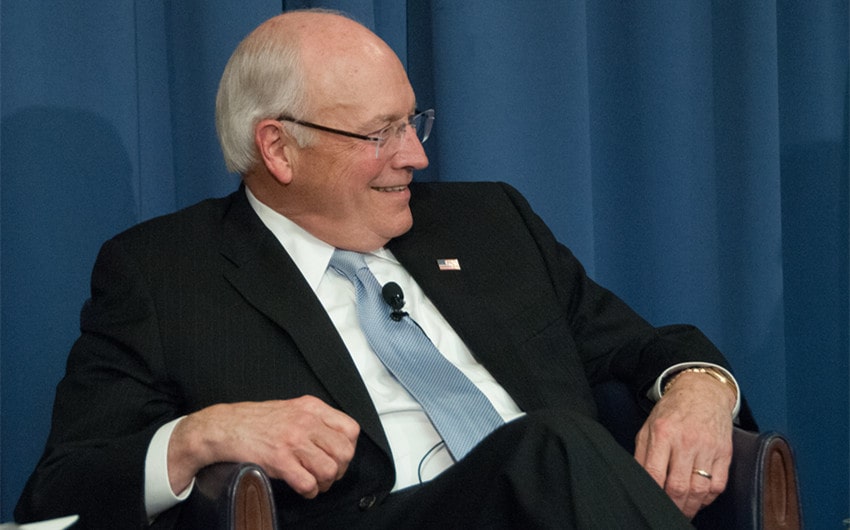Richard Cheney’s Net Worth: Politics, Halliburton, and Post-VP Wealth
If you have ever wondered about Richard Cheney’s net worth, the answer reflects not only decades of political service but also highly lucrative years in the private sector. Known widely as Dick Cheney, he is one of the most influential and controversial figures in modern American politics. Serving as Vice President under George W. Bush from 2001 to 2009, Cheney’s career also spanned roles as Secretary of Defense, White House Chief of Staff, and long-time member of Congress. Yet much of Richard Cheney’s net worth, estimated between $80 million and $100 million as of 2025, comes from his leadership in the corporate world, particularly his tenure as CEO of Halliburton. By combining public service with private-sector experience, Cheney amassed a fortune that has sustained him long after leaving political office.
Who Is Richard Cheney?
Richard Bruce Cheney was born on January 30, 1941, in Lincoln, Nebraska, and raised in Casper, Wyoming. Coming from modest beginnings, Cheney’s academic path took him first to Yale University, though he left before completing his degree. He later returned to school and earned both a bachelor’s and master’s degree in political science from the University of Wyoming. His interest in politics quickly evolved into a career that would span over four decades and place him at the center of U.S. government and policy-making.
Cheney’s political career began in earnest when he served as an intern and later staffer during the Nixon administration. His rise was rapid, and in 1975, at the age of just 34, he was appointed White House Chief of Staff under President Gerald Ford. This role established him as one of Washington’s sharpest political operatives.
From 1979 to 1989, Cheney represented Wyoming in the U.S. House of Representatives, where he built a reputation as a pragmatic conservative. His most high-profile role before the vice presidency came when he was appointed Secretary of Defense under President George H.W. Bush from 1989 to 1993. During this period, he oversaw Operation Desert Storm and played a major role in U.S. military operations following Iraq’s invasion of Kuwait.
After a brief period out of government, Cheney became the CEO of Halliburton, an oilfield services and engineering company, from 1995 to 2000. This period was not only pivotal for his business career but also for his personal wealth. In 2000, George W. Bush selected him as his running mate, and Cheney served two terms as Vice President. In that role, he was one of the most powerful vice presidents in U.S. history, often shaping defense and foreign policy, especially in the wake of the September 11 attacks.
Estimated Net Worth
Richard Cheney’s net worth is estimated between $80 million and $100 million. While his decades of government service provided stable salaries and generous retirement benefits, it was his tenure at Halliburton and his activities after leaving the vice presidency that built the bulk of his wealth.
As Vice President, Cheney earned around $230,000 annually. While a respectable salary, it pales in comparison to his corporate earnings. At Halliburton, Cheney received millions in salary, bonuses, and stock options. Even after stepping down to re-enter government service, deferred compensation and stock holdings tied to Halliburton continued to add to his wealth.
His financial portfolio was further strengthened by publishing books, engaging in high-paid speaking tours, and likely investing in real estate and private ventures. Taken together, these income streams explain why Richard Cheney’s net worth today sits near the nine-figure mark, making him one of the wealthiest former vice presidents in U.S. history.
Breakdown of Richard Cheney’s Income
Political Career Earnings
During his decades in public service, Cheney earned salaries as a congressman, cabinet member, and vice president. As a member of the House of Representatives for Wyoming, he received an annual congressional salary, which in the 1980s ranged between $60,000 and $80,000. When he became Secretary of Defense under President George H.W. Bush, his salary rose to approximately $90,000 per year, which was standard for a cabinet-level position at the time.
As Vice President from 2001 to 2009, Cheney earned about $230,000 annually. Combined with retirement pensions and government benefits, his political career provided a stable foundation. However, compared to his private-sector earnings, these salaries represented only a fraction of his eventual fortune.
Halliburton and Corporate Leadership
The largest single contributor to Richard Cheney’s net worth is his time as CEO of Halliburton. Cheney took the helm in 1995 and served until 2000. During this period, he reportedly earned millions in salary and bonuses. More importantly, he accumulated significant stock options and deferred compensation agreements.
Estimates suggest Cheney made well over $20 million from Halliburton during his tenure. Some sources place his total compensation package, including stock, closer to $36 million. Even after leaving the company to become Vice President, Cheney continued to receive deferred compensation, though he maintained that these payments were from arrangements made before he entered public office.
Halliburton itself became a subject of controversy during the Iraq War, as the company and its subsidiaries received billions of dollars in government contracts. While Cheney insisted he had severed direct financial ties, the association fueled public debate about the overlap between corporate power and government decision-making. Regardless of the controversies, Halliburton remains the most financially rewarding chapter of Cheney’s career.
Books and Publishing
Cheney has co-authored several books after leaving office, further adding to his wealth. His memoir In My Time (2011), written with his daughter Liz Cheney, became a bestseller, offering his perspective on his career and decisions in government. Later, he co-authored Exceptional: Why the World Needs a Powerful America (2015), which argued for a strong U.S. role in global affairs.
Book advances and royalties from these titles likely earned Cheney millions. High-profile political memoirs often come with seven-figure advances, and his books sold widely, particularly among readers interested in conservative politics and recent U.S. history.
Speaking Engagements and Consulting
After leaving the vice presidency, Cheney became a highly sought-after speaker. His unique perspective on politics, foreign policy, and leadership allowed him to command large fees for appearances at conferences, universities, and corporate events. Reports suggest that he earns tens of thousands of dollars per appearance, with some engagements potentially paying over $100,000.
In addition to public speaking, Cheney has been involved in consulting and advisory roles for think tanks, corporations, and policy groups. These roles provide both financial compensation and opportunities to remain influential in shaping policy discussions.
Investments and Personal Assets
While specific details of Cheney’s investments are not public, financial disclosures during his time in office revealed assets in the millions. He likely holds investments in real estate, stock portfolios, and possibly private business ventures. It is common for individuals of Cheney’s wealth and stature to diversify holdings in ways that preserve and grow long-term capital.
Cheney has maintained homes in Wyoming and Virginia, reflecting both his roots and his connection to Washington, D.C. These properties, along with any additional real estate holdings, contribute to his overall wealth.






